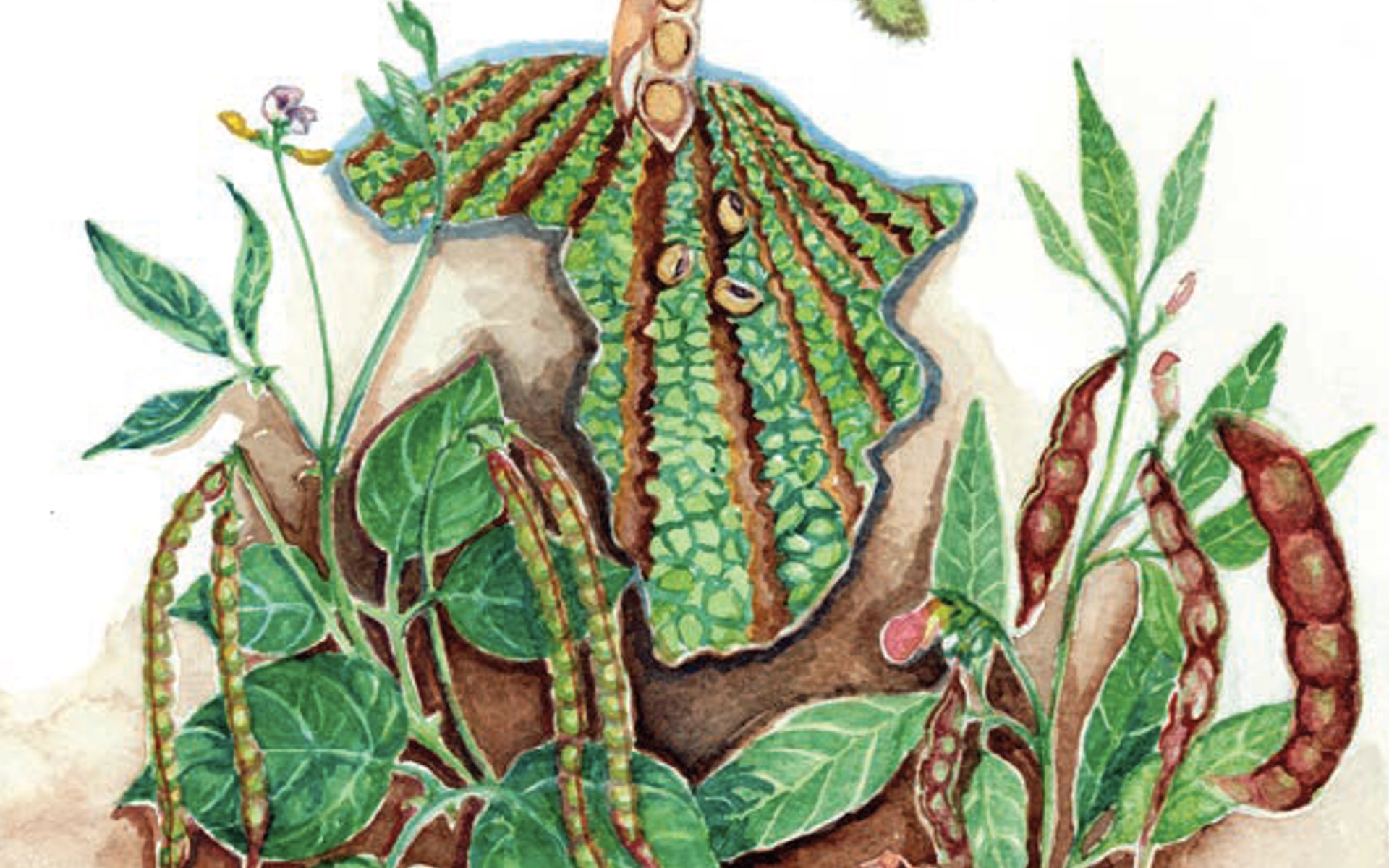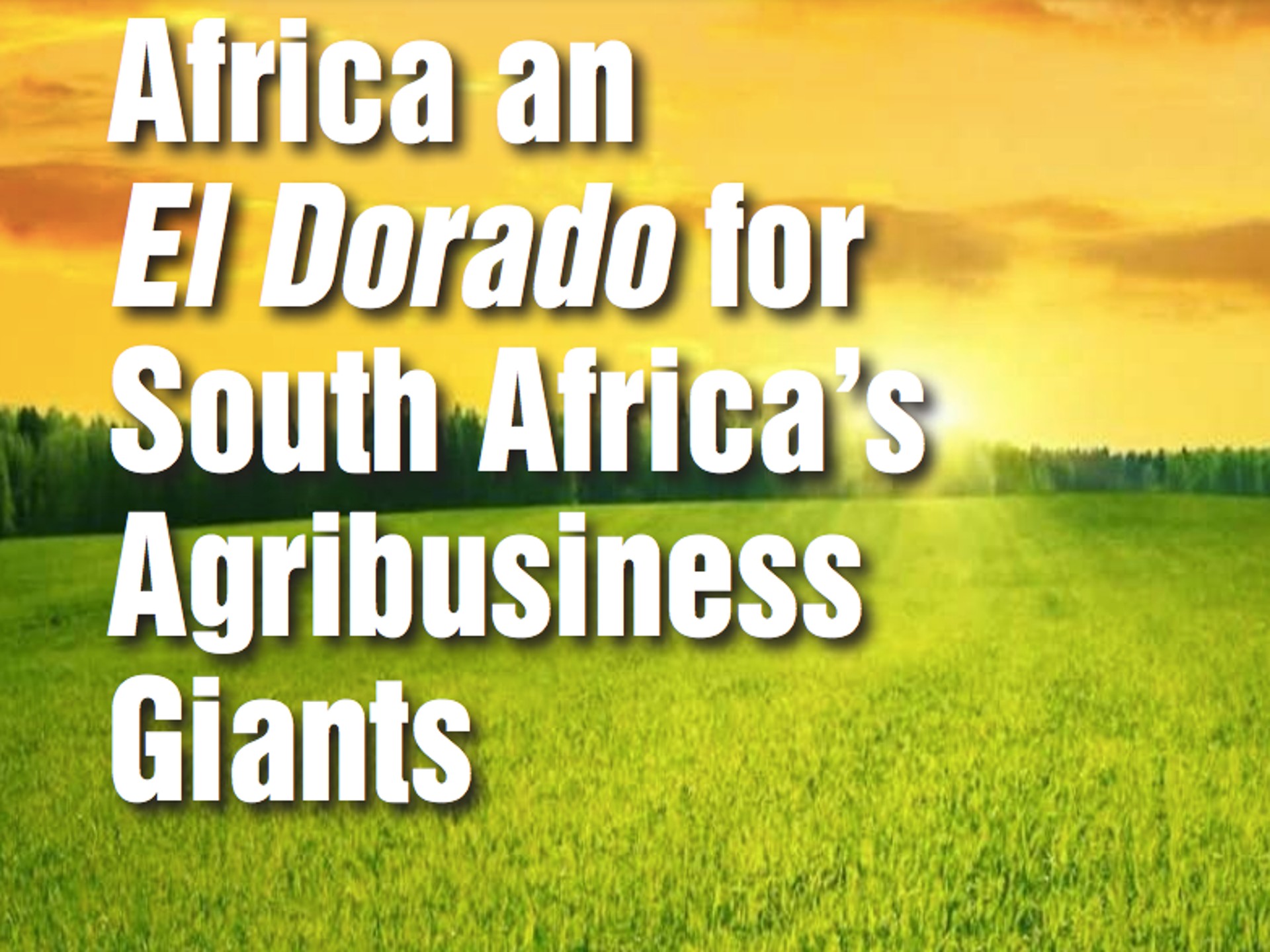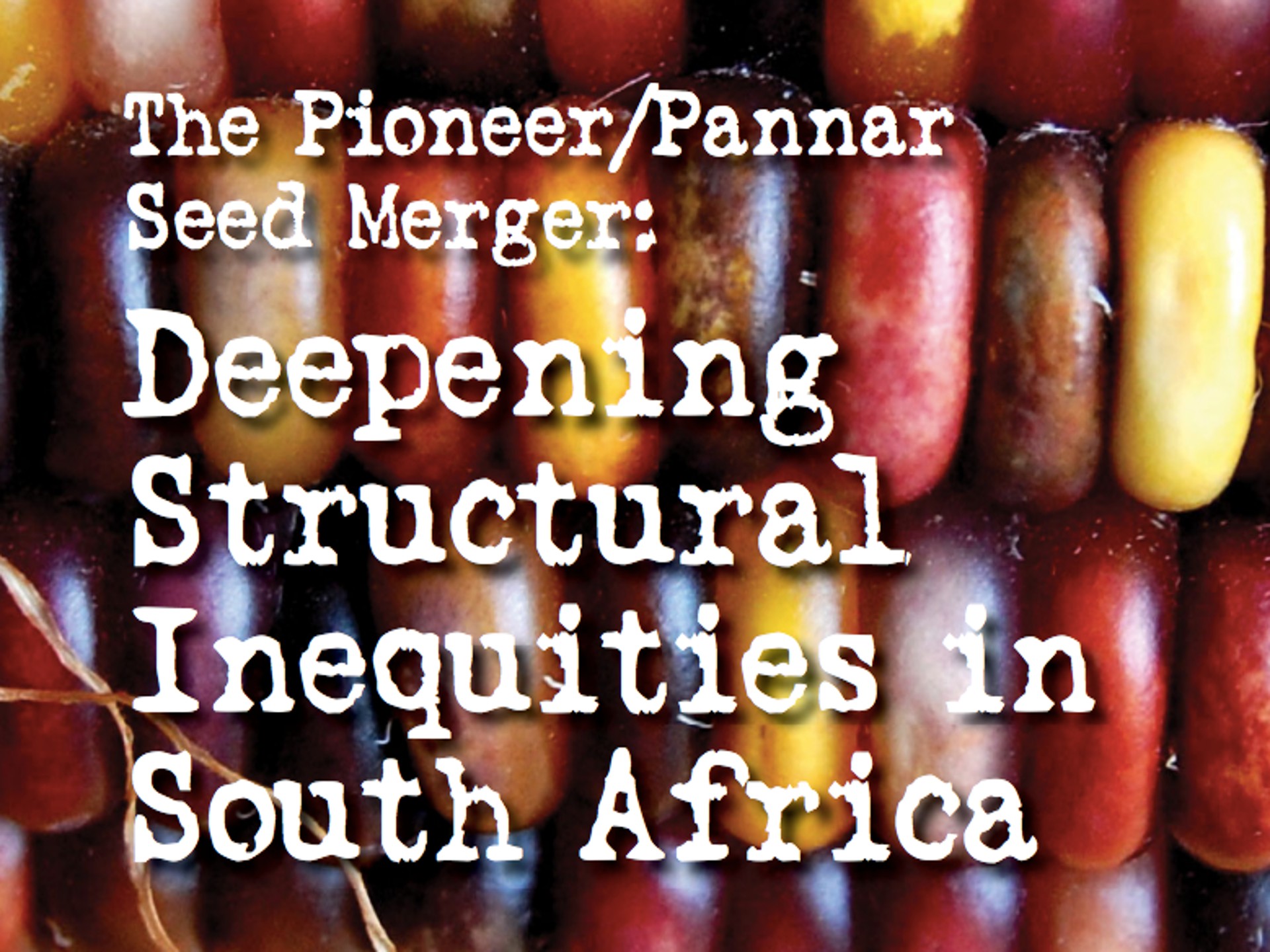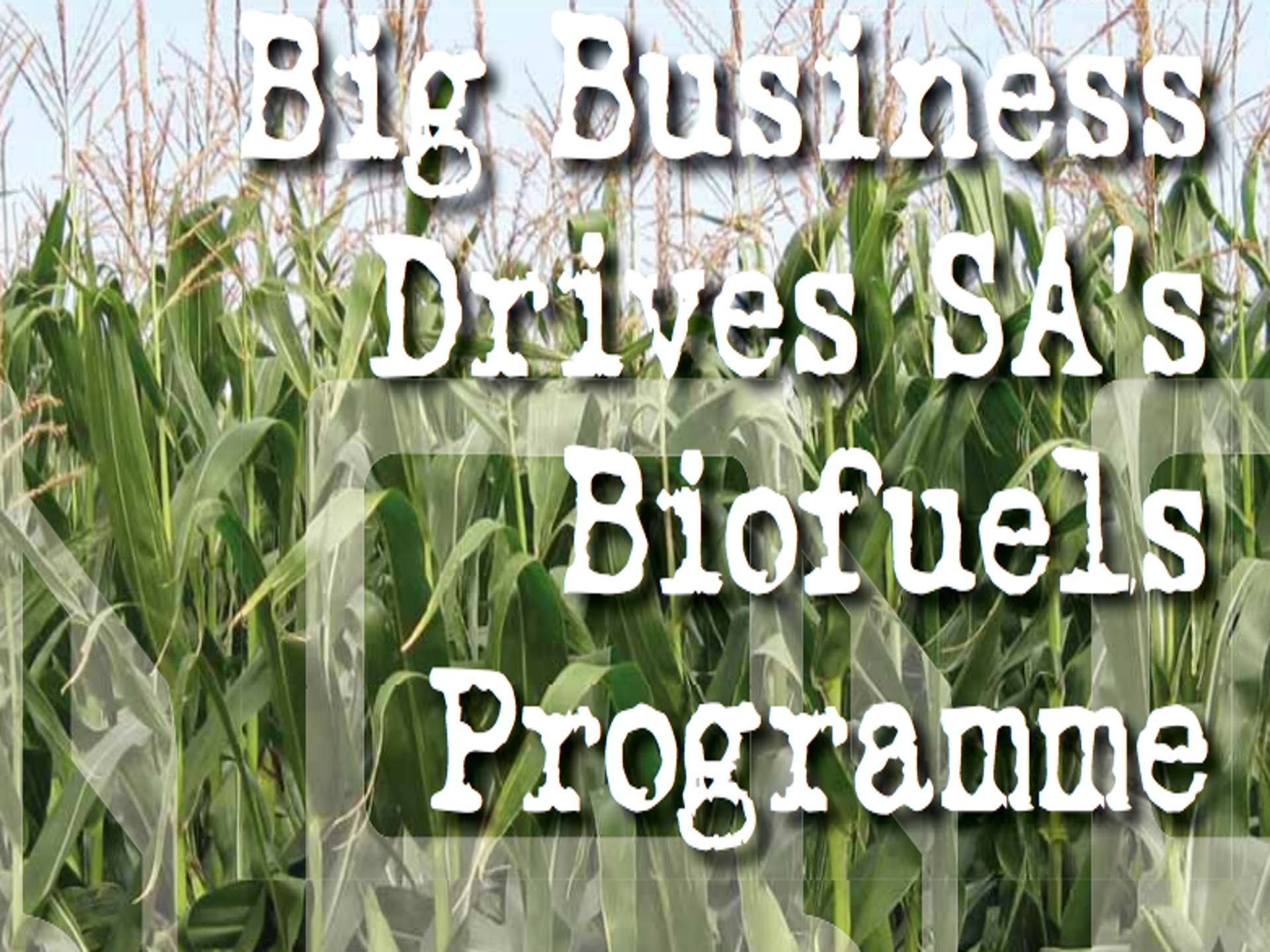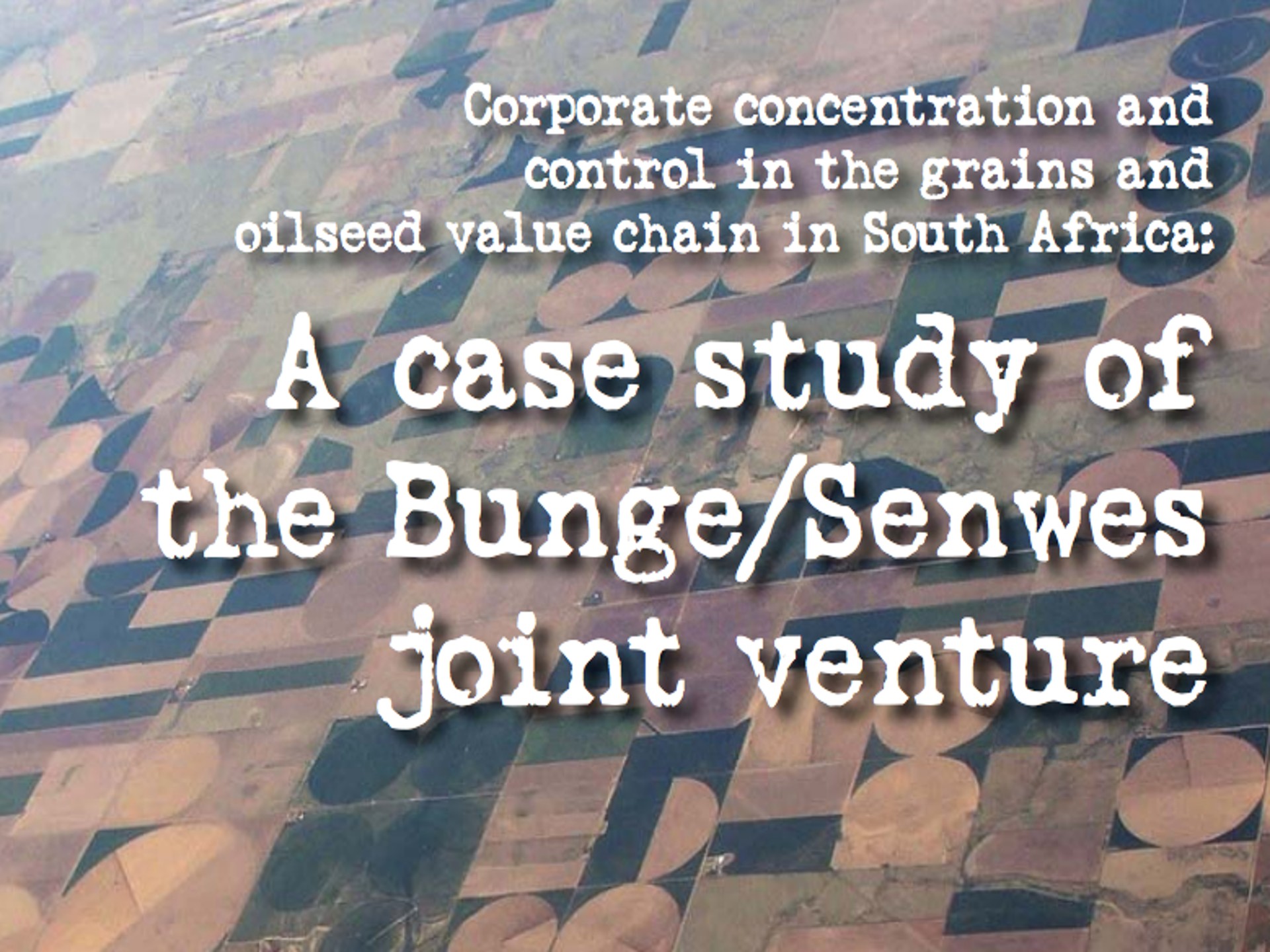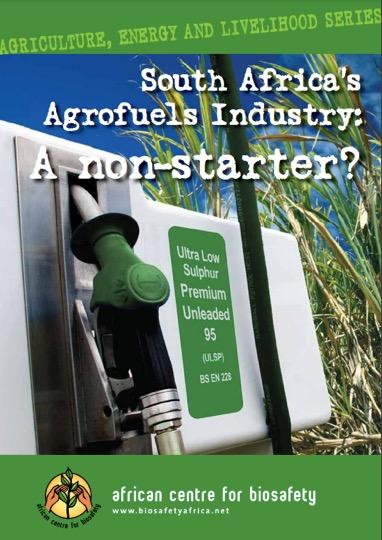Latest Agribusiness Resources
14 March 2017
ACB Submission to Competition Commission on Bayer Monsanto merger
This submission is made by the ABC because of serious public interest concerns about the proposed merger between Bayer and Monsanto. This merger is occurring in the context of other related mergers in agricultural input supply, between ChemChina-Syngenta and Dow-Du Pont. We urge the Commission to consider the wider implications of these mergers beyond a […]
READ13 February 2017
Bayer-Monsanto merger: An existential threat to South Africa’s food system
In December 2016 Monsanto shareholders voted in favour of the sale of the company to Bayer for US$66 billion, making it the largest-ever foreign corporate takeover by a German company. Both Bayer and Monsanto are major global manufacturers of agrochemicals and seeds, including genetically modified seed. A merged entity would be the world’s largest supplier […]
READ29 August 2016
N2 Africa, the Gates Foundation and Legume commercialisation in Africa
This report considers the N2Africa programme, which aims to develop and distribute improved, certified legume varieties (soya, common bean, groundnut and cow pea); promote and distribute inoculants and synthetic fertiliser; and develop commercial legume markets for smallholder integration in 13 countries in sub-Saharan Africa: Tanzania, Uganda, Ethiopia, Nigeria, Ghana (core countries); Kenya, Rwanda, Democratic Republic […]
READ2 September 2014
Africa an El Dorado for South Africa’s Agribusiness Giants
South African agribusinesses are aggressively expanding into Africa in search of profits from a relatively untapped consumer market with rising income levels and to escape the country’s negative economic conditions. This paper traces this expansion and outlines the implications for Africa’s market structure, food security and food sovereignty movements, as well as exploring the potential […]
READ18 November 2013
Giving With One Hand and Taking With Two: A Critique of AGRA’s African Agriculture Status Report 2013
The African Centre for Biosafety (ACB) has released a comprehensive critique of a report published by the African Alliance for a Green Revolution in Africa (AGRA). The analysis of AGRA’s African Agriculture Status Report 2013 reveals that AGRA’s vision is premised on Public-Private Partnerships in which African governments will shoulder the cost and burden of […]
READ13 September 2012
The Pioneer/Pannar seed merger: deepening structural inequalities in South Africa
In this briefing, we deal with the Pioneer/Pannar seed merger, outlining the evidence led by the ACB in opposing the merger, what is at stake for South Africa if the merger is approved and the extent to which the merger will deepen structural imbalances in the South African economy. Read the briefing here.
READ15 May 2012
Big Business Drives SA’s Biofuels Programme
In late February 2012 leading figures from the fossil fuel industry met in Pretoria to forge ahead with the government’s highly controversial plans for an SA biofuels industry. The catalyst for this meeting was the publication by the government last September of draft regulations for the mandatory blending of biofuels in the nation’s fuel supply. […]
READ9 January 2012
ACB comments on biofuels mandatory blending
The African Centre for Biodiversity hereby lodges its objections and comments to the draft regulations regarding the mandatory blending of biofuels with petrol and diesel. Read here.
READ3 October 2011
Corporate concentration and control in the grains and oilseed value chain in South Africa: A case study of the Bunge/Senwes joint venture
The Bunge/Senwes joint venture signals the first significant investment by Bunge in Africa. Bunge is one of the world’s largest and most influential corporations and is amongst a handful of companies dominating global trade in agricultural commodities. Senwes holds a dominant position in the South African market for the storage and handling of grain crops. […]
READ24 March 2011
South Africa’s Agrofuel’s Industry: A non-starter?
This paper provides a brief overview of the biofuels industry in the context of the South African government’s 2008 policy. Our key finding is that the large-scale biofuels industry has stagnated almost to the point of non-existence. There is, however, a growing impetus to address the shortcomings in government policy that has held the industry […]
READ9 March 2011
How US sorghum seed distributions undermine the FAO Plant Treaty’s Multilateral System
New data from ICRISAT and the US Department of Agriculture and a comparison of genebank records indicates that half of more of ICRISAT’s sorghum genebank collection is also being distributed outside of the Multilateral System. This yawning gap creates an economic incentive for the Multilateral System and its benefit-sharing requirements to be avoided. USDA’s sorghum […]
READ19 February 2011
Agrochemical giant DuPont to sell Bolivian sorghum gene
In 2012 multinational giant DuPont plans to begin selling sorghum varieties containing a valuable gene taken from a sudan grass that was collected in 2006 in Bolivia. The gene, branded as ‘Inzen A II’, makes sorghum plants tolerant to herbicides made by DuPont and other companies, and was acquired under exclusive license from Kansas State […]
READ


